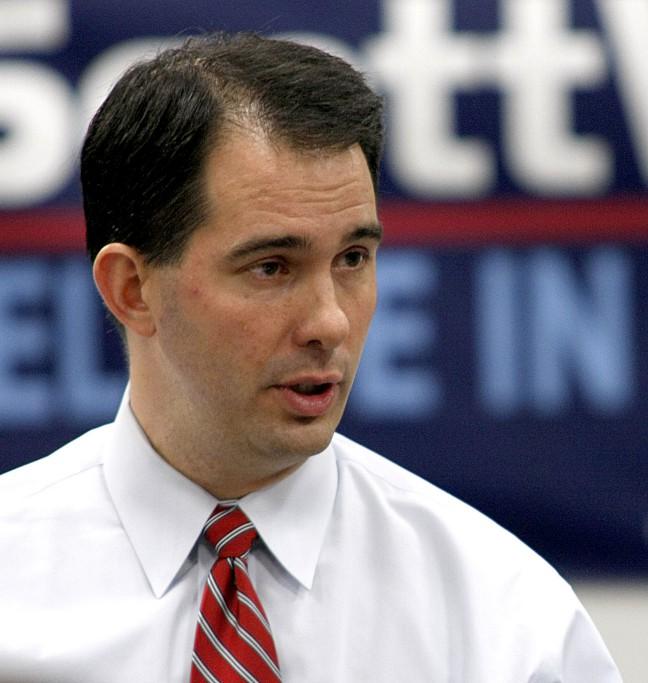Gov. Scott Walker may have passed his greatest hurdle yet regarding his 2016 presidential prospects, a midterm re-election. Yet, much remains to be seen as to whether or not he will place a bid and if so, how he would position himself within a faction bound party struggling for direction.
As Walker comes down from his election-day high and attempts to get back down to the business of state politics, he is already beginning to deal with an onslaught of questions regarding his plans for a 2016 presidential campaign. After winning his third gubernatorial race in a traditional swing state, the governor is starting to be viewed by many as a viable option for the 2016 Republican presidential nomination.
In a telephone interview with the Associated Press Tuesday, Walker said of his current 2016 plans, “my personal process is I have to feel like it’s a calling, particularly for the time and the effort and the impact on family and friends.”
Through his November victory, Walker proved that he has the ability to harness the full backing of his own party in a state that is not traditionally so partisan. According to the Associated Press, exit polls show that 96 percent of Wisconsin Republicans cast their vote for Walker. He was also ahead with independent voters.
Kenneth Mayer, a professor of political science at University of Wisconsin, said because of Walker’s young age, a bid by Ryan in 2016 would most likely deter him from the race.
“Scott Walker is young and could be a player in Republican politics for 20 to 25 years. This is not his last opportunity,” he said.
Mike Wagner, assistant journalism professor at UW, sees a Walker campaign taking on two distinct phases; being able to converse domestically and internationally.
“Most voters in primaries are far more extreme than the voters who show up in a general election, and so he would not need to moderate in a primary, but [rather] convince voters that he is conversant with national, and more importantly international issues,” Wagner said, “If his party nominated him, he would be following a long tradition of candidates in both parties if he decided to moderate in a general election.”
Wagner and Mayer agreed that it would be beneficial for Walker to run a highly conservative primary campaign, but he would most likely have to cater to a changing U.S. demographic if he received the nomination.
“I think it’s pretty clear that there are limits to how far a hard right strategy will work nationally,” Mayer said. “The reasons are pretty standard — they have had difficulty appealing to anybody outside their base, which is essentially white men. The key question is what, if anything, they [Republicans] can do to extend that appeal to women, minorities, Hispanics, minorities and young people.”














